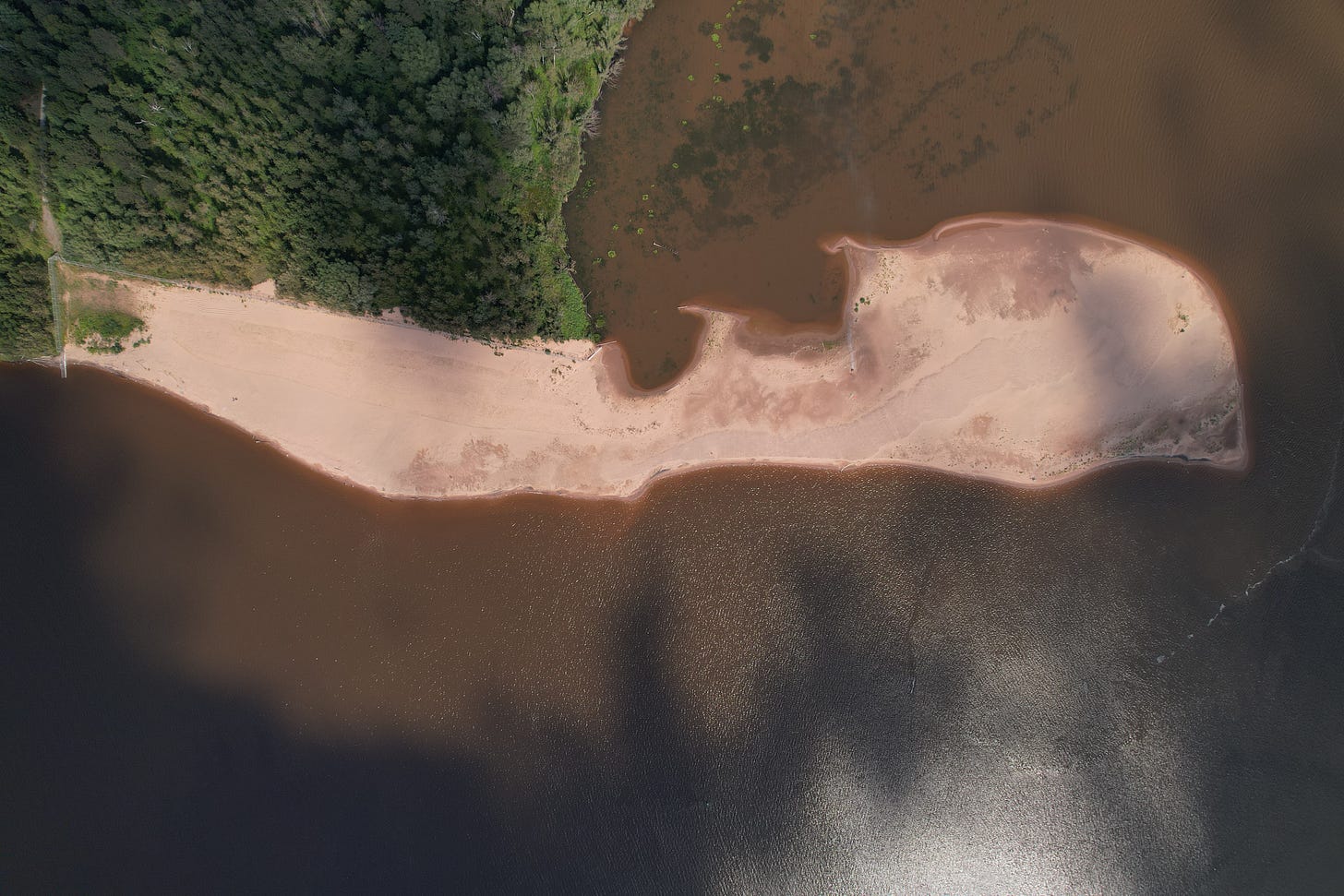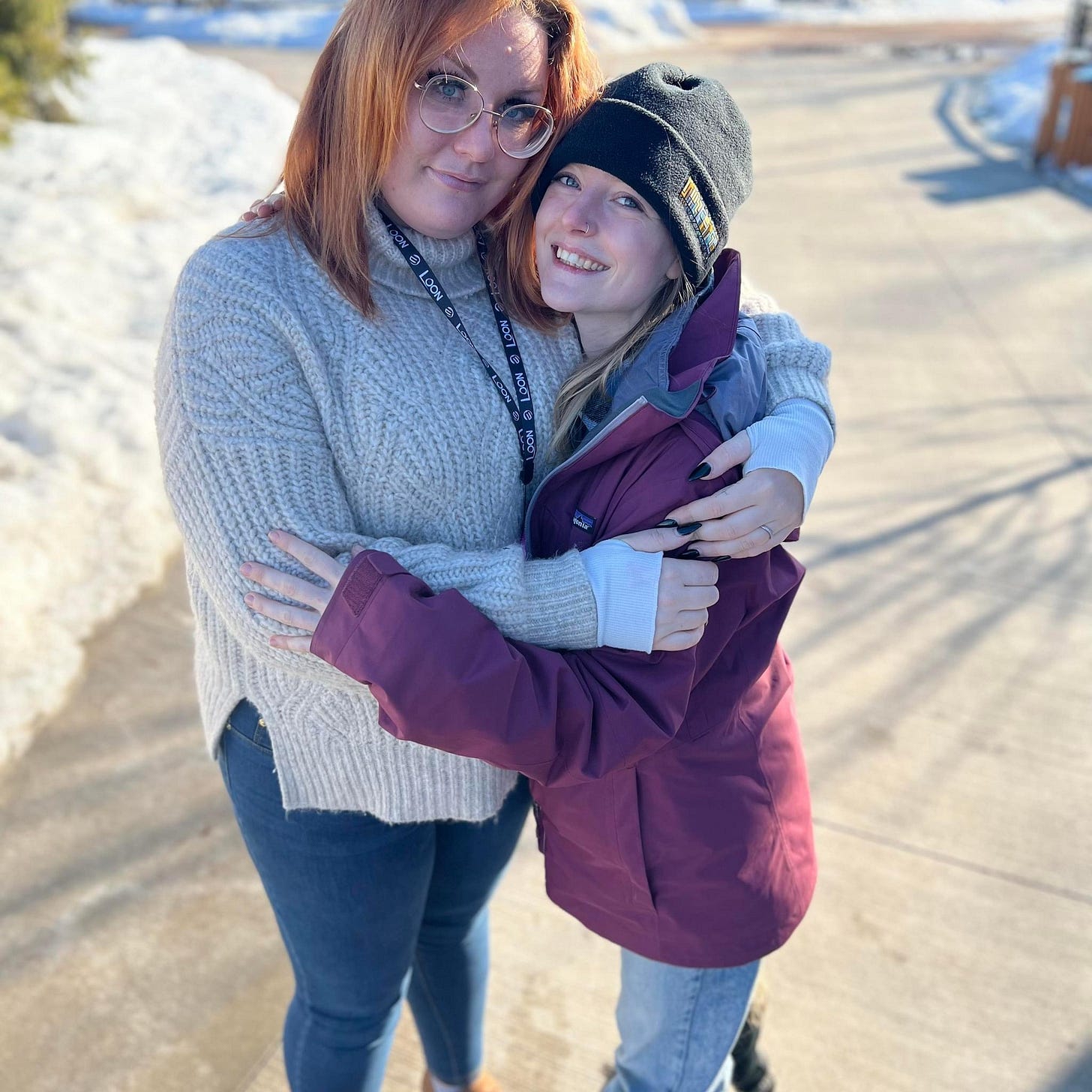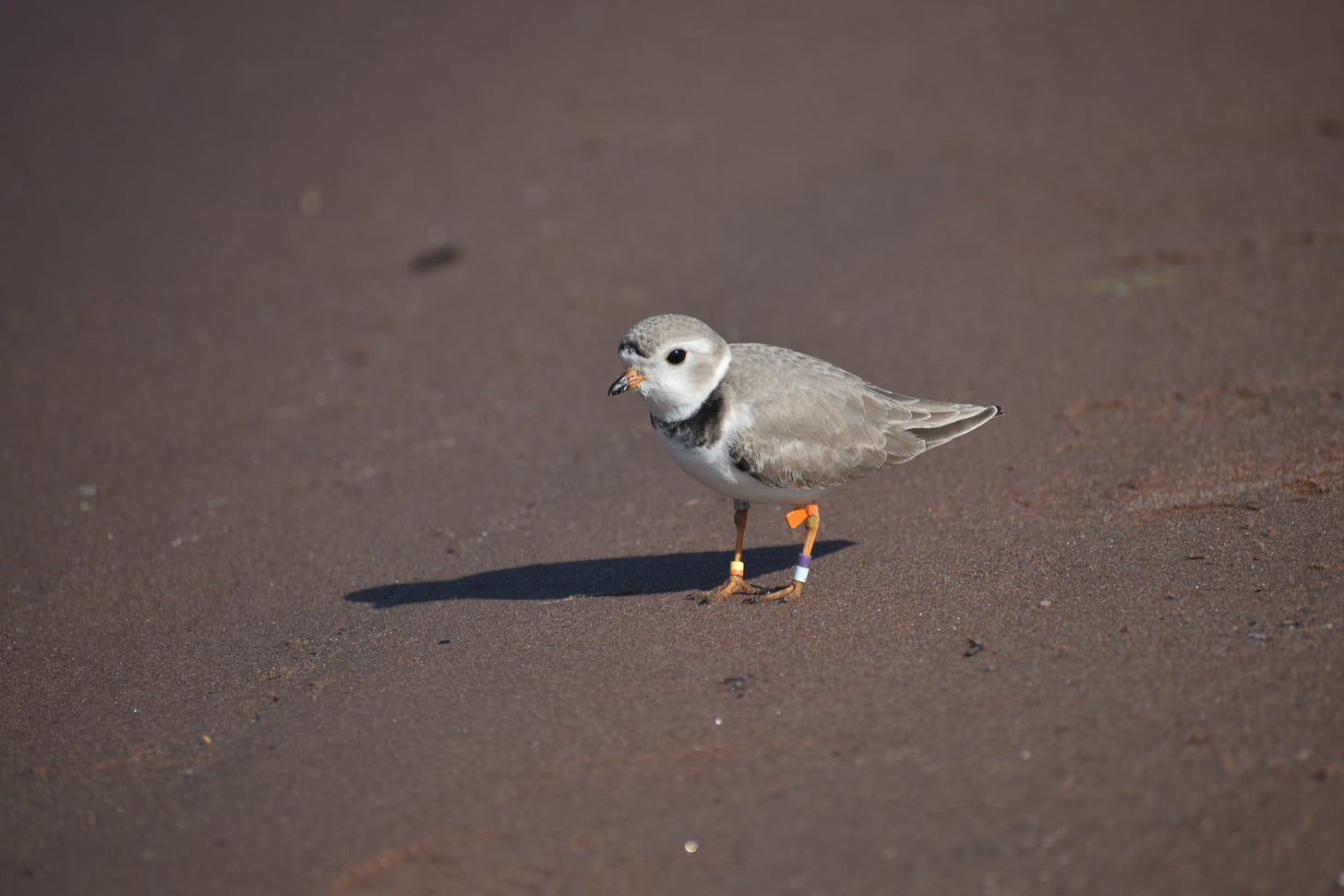Piping Plover site has personal meaning
Mikayla Erickson is working to make Wisconsin Point a future breeding locale.

There is a lot that goes into making a beach hospitable for Piping Plovers. Even then, there is no guarantee one or two will even show up.
Still, the St. Louis River Alliance, a nonprofit located in Duluth, Minnesota, has been working diligently to care for a beach in nearby Superior, Wisconsin. Leading those efforts is Mikayla Erickson, who’s been dedicated to the critically endangered shorebird since 2019.
“My goal is to keep this site beautiful,” Mikayla says.
To be clear, Piping Plovers don’t currently nest at the beach (Wisconsin Point). They haven’t been in the vicinity since the 1970s. But that’s the point of this project: to bring the plovers back. A few pass through each May, and it’s possible that with the right timing and a bit of luck that a pair will meet and stick around. Most birds currently move on to the Apostle Islands, where they have long nested. The Apostles are among several sites on Lake Superior that host the birds, a few of which TWiB mentioned earlier this month in the annual Piping Plover season preview.
Mikayla’s responsible for coordinating volunteers, clearing driftwood, planting native dune grasses, removing invasive plants, and spreading cobble (the rocks that make the beach more favorable to plovers). It’s a sandy spit among 12 acres of prime plover habitat owned by the State of Wisconsin. Because of the maintenance, there have been regular visits recently by Piping Plovers as well as Red Knots (federally endangered), Black-bellied Plovers, American Golden Plovers, Semipalmated Plovers, and Ruddy Turnstones.
This work is not without challenges, both professional and personal. In 2025, state and federal project funding has ended, but the alliance plans to continue its Piping Plover project by raising funds through the Jennifer Erickson Memorial Fund. Jennifer is Mikayla’s sister, and she died suddenly in May 2023. The morning after Jennifer’s passing, a Piping Plover arrived at Wisconsin Point as if a sign from above.
“My sister has always supported me,” Mikayla says. “It’s a beautiful beach to monitor. It’s so important, and I just couldn’t give up on the site.”
People like Mikayla are literally the difference between Piping Plovers returning to a place or not returning to a place. Plovers need people if they are to increase their numbers to 150 breeding pairs (the stated goal for the Great Lakes).
And what would it take to reach the goal of 150? Sustained efforts like those of Mikayla and the St. Louis River Alliance, which can continue the work they’ve started.
If you would like to donate to the Jennifer Erickson Memorial Fund, you may do so by clicking here.




